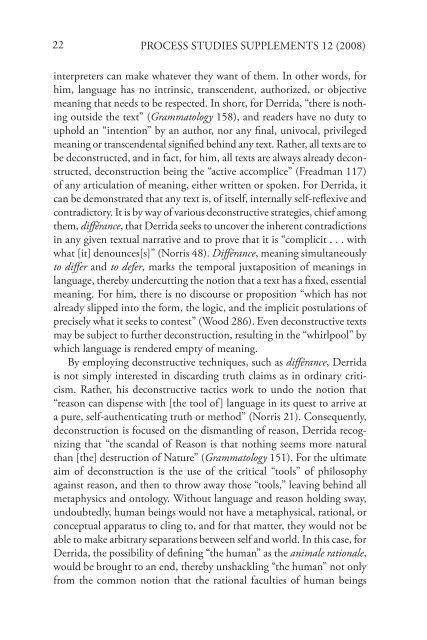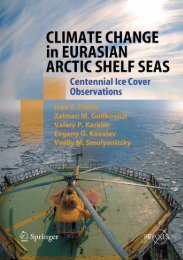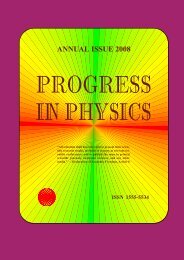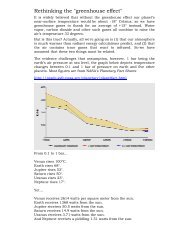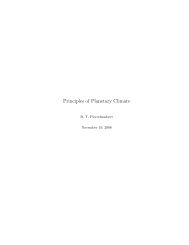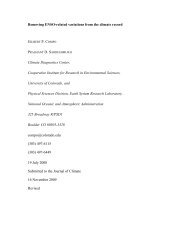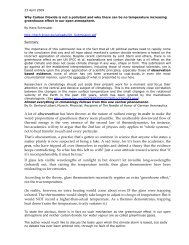Process Studies Supplement Overcoming Anthropocentric ... - Here
Process Studies Supplement Overcoming Anthropocentric ... - Here
Process Studies Supplement Overcoming Anthropocentric ... - Here
Create successful ePaper yourself
Turn your PDF publications into a flip-book with our unique Google optimized e-Paper software.
22<br />
PROCESS STUDIES SUPPLEMENTS 12 (2008)<br />
interpreters can make whatever they want of them. In other words, for<br />
him, language has no intrinsic, transcendent, authorized, or objective<br />
meaning that needs to be respected. In short, for Derrida, “there is nothing<br />
outside the text” (Grammatology 158), and readers have no duty to<br />
uphold an “intention” by an author, nor any final, univocal, privileged<br />
meaning or transcendental signified behind any text. Rather, all texts are to<br />
be deconstructed, and in fact, for him, all texts are always already deconstructed,<br />
deconstruction being the “active accomplice” (Freadman 117)<br />
of any articulation of meaning, either written or spoken. For Derrida, it<br />
can be demonstrated that any text is, of itself, internally self-reflexive and<br />
contradictory. It is by way of various deconstructive strategies, chief among<br />
them, différance, that Derrida seeks to uncover the inherent contradictions<br />
in any given textual narrative and to prove that it is “complicit . . . with<br />
what [it] denounces[s]” (Norris 48). Différance, meaning simultaneously<br />
to differ and to defer, marks the temporal juxtaposition of meanings in<br />
language, thereby undercutting the notion that a text has a fixed, essential<br />
meaning. For him, there is no discourse or proposition “which has not<br />
already slipped into the form, the logic, and the implicit postulations of<br />
precisely what it seeks to contest” (Wood 286). Even deconstructive texts<br />
may be subject to further deconstruction, resulting in the “whirlpool” by<br />
which language is rendered empty of meaning.<br />
By employing deconstructive techniques, such as différance, Derrida<br />
is not simply interested in discarding truth claims as in ordinary criticism.<br />
Rather, his deconstructive tactics work to undo the notion that<br />
“reason can dispense with [the tool of] language in its quest to arrive at<br />
a pure, self-authenticating truth or method” (Norris 21). Consequently,<br />
deconstruction is focused on the dismantling of reason, Derrida recognizing<br />
that “the scandal of Reason is that nothing seems more natural<br />
than [the] destruction of Nature” (Grammatology 151). For the ultimate<br />
aim of deconstruction is the use of the critical “tools” of philosophy<br />
against reason, and then to throw away those “tools,” leaving behind all<br />
metaphysics and ontology. Without language and reason holding sway,<br />
undoubtedly, human beings would not have a metaphysical, rational, or<br />
conceptual apparatus to cling to, and for that matter, they would not be<br />
able to make arbitrary separations between self and world. In this case, for<br />
Derrida, the possibility of defining “the human” as the animale rationale,<br />
would be brought to an end, thereby unshackling “the human” not only<br />
from the common notion that the rational faculties of human beings


